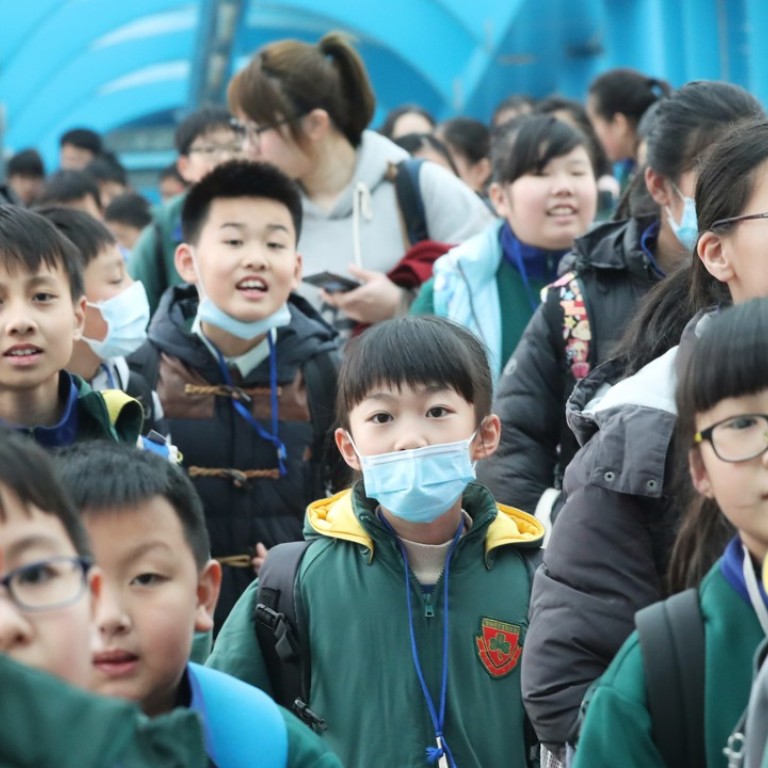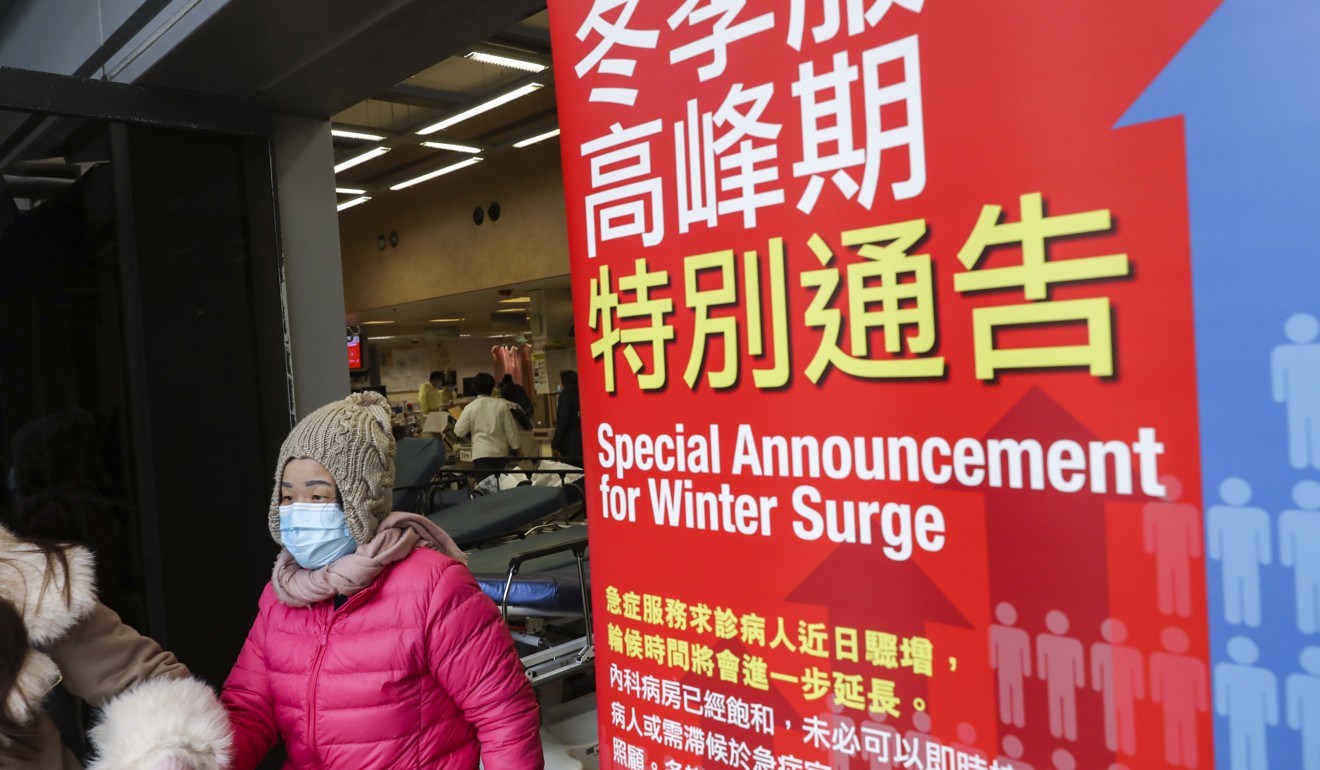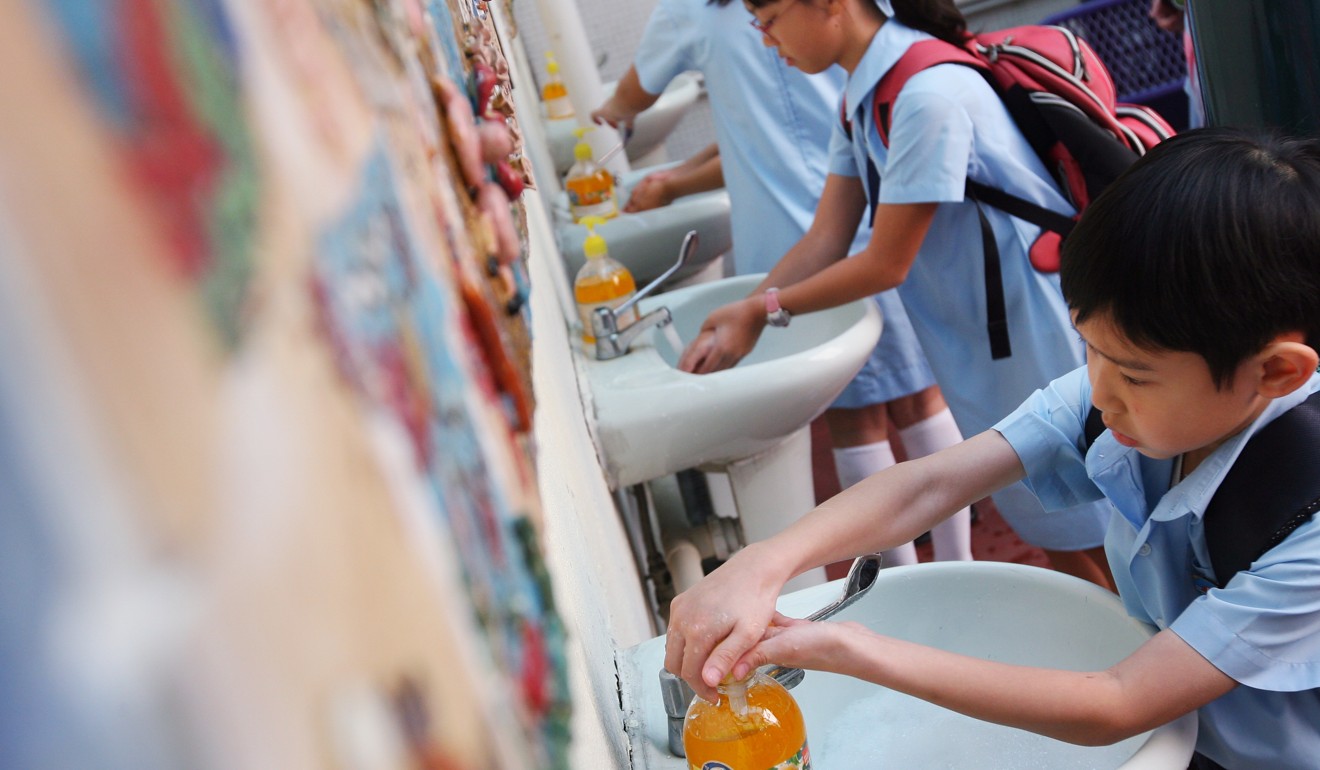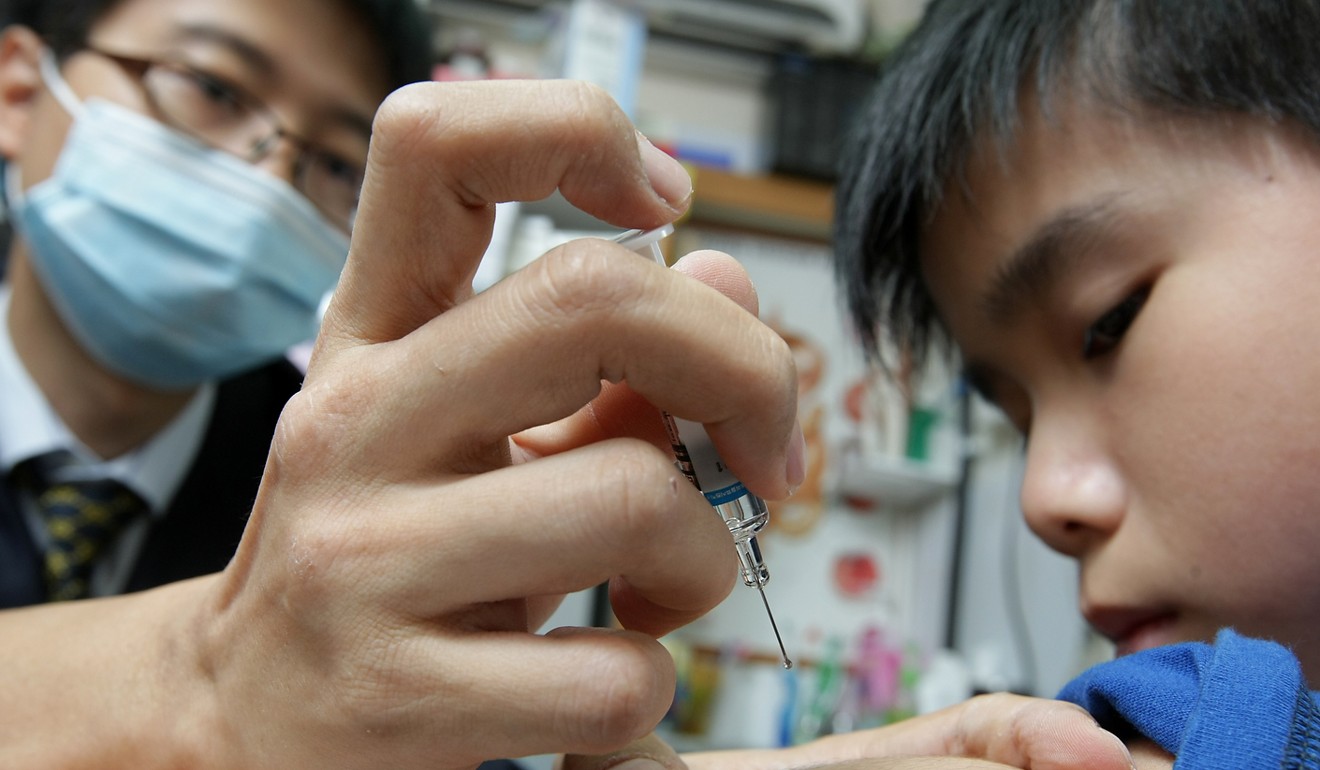
What you need to know about this year’s unusual winter flu surge in Hong Kong
Numerous school cases have sparked early closure ahead of the Lunar New year holiday, while experts warn of another outbreak on the horizon
Another year, another flu season. But how different is this one? Since the start of the year, more than 120 people, including two children, have died from serious flu complications in an unusually intense seasonal outbreak that is expected to last a few more months.
Flu outbreaks are common every year in the winter and summer, and in Hong Kong’s case, between January and March, and from July to August. Here’s what you need to know.
What is the flu?
Seasonal influenza, better known as the flu and not the same as the common cold, is a contagious respiratory illness caused by flu viruses. Common symptoms include fever, chills, cough, sore throat, runny nose, headaches and fatigue.
Most healthy adults recover within two weeks, but high-risk groups, especially children, the elderly and those with chronic illnesses can develop complications such as infections of the upper or lower respiratory tracts or pneumonia. In the worst cases, it can result in death.

According to the World Health Organisation, annual influenza epidemics are estimated to result in about three to five million severe cases, and about 290,000 to 650,000 deaths globally.
There are four types of flu viruses: A, B, C and D. Humans are mainly affected by the pandemic-causing type A – with subtypes H1 and H3 – and type B strains. Type C is rarer and causes mild infections with low impact to public health, while D primarily affects cattle.
Hong Kong’s first nasal spray flu vaccine ‘should be trialled in China’
What is unique about the outbreak this winter?
Since the start of the winter flu season, some 203 adults have developed severe flu complications. Of those, more than 120 died. At least 96 of them were aged 65 or older. There were also two deaths among the child cases.
Most of the outbreaks at schools and kindergartens involved the dominant influenza B virus, which has not been active in recent years.
As a result, most children have not been infected with this virus before and even fewer have received vaccinations for it. Also, while most of them have developed antibodies against the type A virus since the last summer outbreak, the immunity is expected to have worn off.
HK$500 million boost to ease flu season staff shortage in hospitals
Medical experts expect the peak of the current type B flu outbreak to last at least a few more months, but are already warning of another surge on the horizon, this time, involving the more common influenza A virus, leading to the dangerous phenomenon of “double peaks”.
What measures were announced to tackle the outbreak?

How a flu-hit mother suffered as her baby lay ill in a Hong Kong hospital
Why are kindergartens and primary schools being closed earlier?
Social distancing. According to authorities, keeping schoolchildren at home would “cut off the chain of infection” as children were less aware of personal hygiene and contact in close quarters with each other meant schools were hotbeds for transmission.

Particularly, children, the elderly and those with underlying illnesses are urged to get vaccinated as early as possible to prevent seasonal influenza
“As you know, most kindergartens, childcare centres and primary schools have crowded conditions,” said Dr Wong Ka-hing, controller for the Centre for Health Protection. “With this measure, called social distancing, we can reduce close contact between students.”
What can you do to prevent flu? And what should you do if you have it?
The Centre for Health Protection suggests for people to avoid going to crowded or poorly ventilated public places. High-risk groups such as young children or the elderly should consider wearing masks when visiting such areas.
People are also advised to wash their hands with liquid soap and water before touching their mouths, noses or eyes, or after touching public installations such as handrails or doorknobs. Alcohol-based hand sanitisers help too. Observe good personal and environmental hygiene and maintain good indoor ventilation.
Hong Kong short of 200 nurses as deadly flu season peaks
“Particularly, children, the elderly and those with underlying illnesses are urged to get vaccinated as early as possible to prevent seasonal influenza as it takes about two weeks for antibodies to develop in the body after vaccination,” a centre spokesman said.

If you develop flu-like symptoms, put on a surgical mask and promptly seek medical advice so that appropriate treatment can be initiated, according to the centre.
Those from high-risk groups who develop severe or complicated illness should be given antivirals and symptomatic treatments as soon as possible.
After the Lunar New Year holiday, children with fever and respiratory symptoms should not attend school until 48 hours after the fever has subsided.

